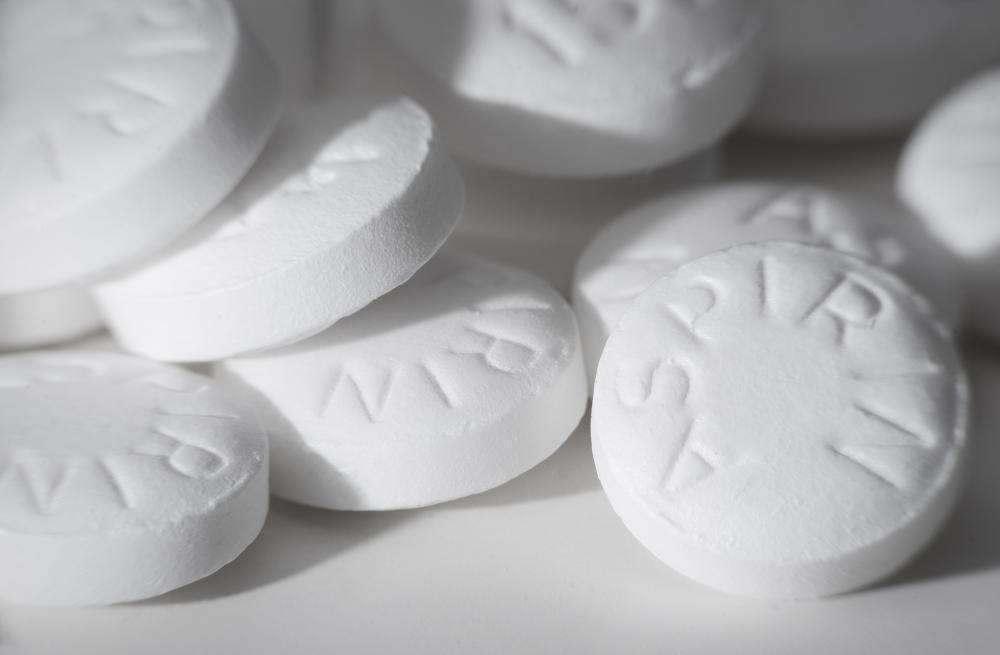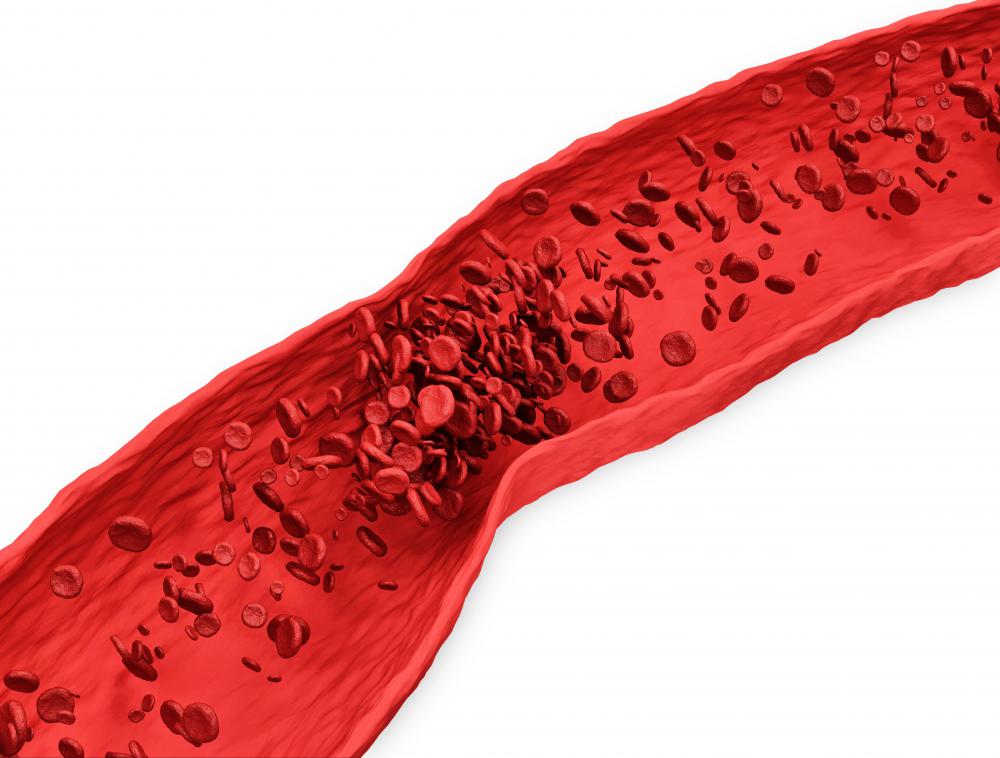At WiseGEEK, we're committed to delivering accurate, trustworthy information. Our expert-authored content is rigorously fact-checked and sourced from credible authorities. Discover how we uphold the highest standards in providing you with reliable knowledge.
What Are the Different Blood-Thinning Medications?
Various blood-thinning medications help prevent complications associated with blood clots, including death. Some common blood-thinning medications include anticoagulants, such as warfarin and heparin. Other examples of blood thinners include those classified as antiplatelet medications, such as aspirin.
Patients suffering from or at risk for various diseases and conditions rely on blood thinners to reduce the risk of dangerous clots. Blood-thinning medications classified as anticoagulants help prevent blood clots from occurring by slowing the formation of blood clots in a patient’s body. Antiplatelet medications work to help stop platelets from forming a blood clot.

Those taking anticoagulants must undergo regular blood testing to monitor their blood levels. These tests allow physicians to adjust the dosage on an as needed basis to ensure the patient’s blood is not prone to clotting. Patients must also check with a pharmacist or physician before taking any over-the-counter medications. Those prescribed an anticoagulant, such as warfarin or heparin, should never take aspirin unless instructed to do so by a physician.

Warfarin is perhaps the most common type of anticoagulant prescribed to patients. Patients take daily doses of the medication based on individual needs. Those taking warfarin should also consume a consistent amount of foods containing Vitamin K, such as spinach, cauliflower, and lettuce. These foods can interfere with the efficiency of warfarin when consumed in erratic amounts.
Heparin is another common type of blood-thinning medication. Typically, this anticoagulant is given in the hospital as an intravenous medication. This medication can help break down existing blood clots while preventing the formation of new ones.

Antiplatelet medications, such as aspirin, are another option for some people at risk for blood clots. These blood-thinning medications should be taken as instructed by a physician. Aspirin is commonly prescribed for those recovering from or at risk for heart problems, such as a heart attack.
Combination medications may also be prescribed. Blood-thinning medications containing a combination of aspirin and dipyridamole can also help prevent blood clots from forming in those susceptible to blood clots. Side effects are minimal and can include headache, diarrhea, and abdominal discomfort.

Those taking blood-thinning medications should keep an eye out for possible complications. This can include intestinal bleeding and easy bruising. Intestinal bleeding can be identified by checking stool for a black or tarry appearance. Any unusual symptoms or signs that develop while taking blood thinners should be discussed with a physician as soon as possible.
AS FEATURED ON:
AS FEATURED ON:














Discussion Comments
The fact that aspirin leads to thinner blood is one of the reasons they think that people who take an aspirin a day as a matter of course tend to live longer than people who don't.
I've read a couple of studies which say that. Of course, aspirin isn't perfect (and don't give it to your kids! It can have bad effects on children) and I'm not sure if they took into account whether this good effect is still present in a population without the kinds of heart disease that result from poor eating and exercise habits.
But, it's definitely something to think about. I know a lot of people who drink cups of green tea every day because they know it's good for you. Swallowing a tab of aspirin would be easier!
@umbra21 - I agree. My father was one of those people who was sensitive to blood thinners and he had to have heart surgery at one point.
Thank god he was aware of this, just because he'd noticed that even with cold medication he would bleed more freely (to the point where he couldn't take it if he had injured himself, for example).
I'm not sure what they would have done if he hadn't known about that, but I don't think they would have checked if he hadn't told them outright that they needed to.
Something interesting I learned recently, is that there is a percentage of the population that can't take warfarin, or at least, can't take it in large doses. And, you can find out if you are in this group by taking a DNA test.
I was looking up DNA tests in general because they seemed like an interesting idea, and I found one that pretty much gives you all the biological data that it's possible to get out of a DNA test these days.
And one of those results is to do with whether or not you are extra sensitive to blood thinner drugs, in particular Warfarin.
I had no idea they could tell that from a test that costs only $100. Seems like the kind of thing they should do as a matter of course before putting anyone on the drug, really.
Post your comments